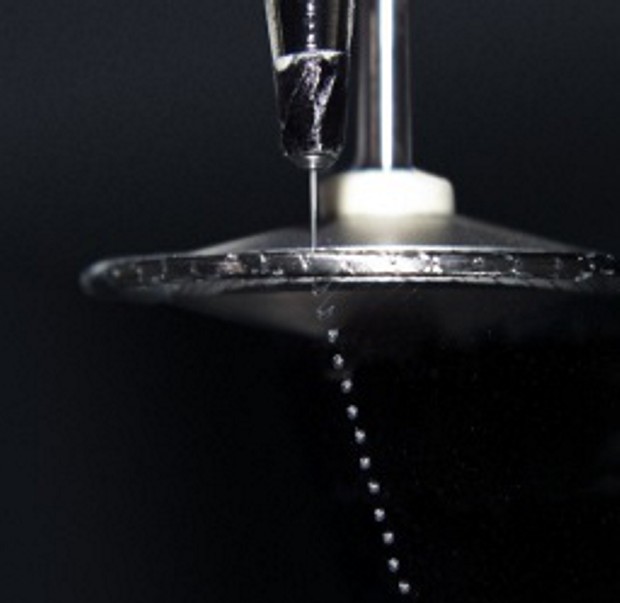Immobilisation technologies
Immobilized biocatalysts can enhance efficiency of bioconversion processes by increasing productivity. The immobilisation technologies we developed are used in industrial scale and have numerous other applications in different industrial fields.
The use of immobilized biocatalysts (e.g. enzymes and microorganisms) can be beneficial for bioconversion processes. Among the advantages are the protection of sensitive biocatalysts, the repeatedly or continuously use of the biocatalysts and the considerably increases in the productivity of the conversion process.
At our institute we developed different methods for the immobilization of biocatalysts and chemical catalysts by the development and optimization of materials and techniques. Additionally, we developed technologies for the production of immobilized catalysts which were scaled-up to an industrial scale. Especially, the LentiKat technology and JetCutter technology are of particular importance.
LentiKats are extremely stable immobilisates based on polyvinyl alcohol. Due to their lens shaping they have superior diffusion properties but still can be easily separated. The LentiKat-technology is used commercially for the immobilization of different biocatalysts
The JetCutter technology is a process for the production of spherical particles. It is the only technology worldwide whereby spheres with the same size (monodisperse) can be produced in large production volumes using highly viscous to pasty fluids. Besides different polymers also waxes or anorganic sols in form of solutions, melts or suspensions can be processed to solid or hollow spheres. The JetCutter technology was successfully transferred for the commercial industrial production of spherical particles to our spin-off company geniaLab. This transfer was awarded with the Technologietransferpreis of the IHK-Braunschweig. In addition to applications in the field of biotechnology the JetCutter products are also utilized in foods, cosmetics, medicine, chemistry and process engineering




























